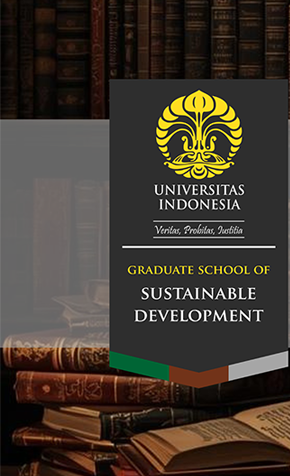Abstract
In Indonesia, there are a number of foundations which were established by the ex-terrorist inmates as a new community towards peace and a way of empowerment for the ex-terrorist inmates. The involvement of ex-terrorist inmates in disengagement strategy in Indonesia has also raised pro(s) and con(s). This research aims to explore the involvement of ex-terrorist inmates in disengagement strategy in Indonesia. This kind of involvement is hoped to become a softer approach because it focuses more in using kinship method, in a way that it will be easier to gain trust, and the people have the same experience and background in terrorism. The methodology used in this research is a qualitative with interview technique. This research found that the phenomenon of the arousal of new communities towards peace which was established by ex-terrorist inmates and combatants is a positive thing as a new medium for those inmates and other inmates who has the desire to come and disengage from violence. However, this kind of phenomenon has to be guided, guarded and controlled by the government in order to keep it in line with the true purpose of deradicalization and counter strategy of terrorism in Indonesia.
Bahasa Abstract
Abstrak
Di Indonesia terdapat beberapa yayasan yang dibentuk oleh mantan nara pidana terorisme sebagai komunitas baru di jalan perdamaian dan pemberdayaan mantan napiter. Pelibatan mantan napiter dalam strategi disengagement di Indonesia juga menuai pro dan kontra. Tujuan tulisan ini adalah mengeksplorasi pelibatan mantan napiter dalam strategi disengagement di Indonesia. Pelibatan mantan napiter diharapkan mampu menjadi pendekatan yang lebih lunak karena mereka mengedepankan metode kekeluargaan, lebih mampu mendapatkan kepercayaan, dan memiliki pengalaman atau latar belakang yang sama dalam terorisme. Metodologi yang digunakan dalam penelitian ini adalah kualitatif dengan menggunakan teknik wawancara. Penelitian ini meneukan bahwa fenomena munculnya komunitas baru di jalan perdamaian yang dibentuk oleh para mantan napiter dan kombatan merupakan hal yang sangat bagus untuk wadah baru bagi para mantan napiter dan kombatan lainnya yang ingin disengage. Namun fenomena tersebut harus terus dibimbing, diawasi dan dikawal oleh Pemerintah agar sesuai dengan tujuan dari deradikalisasi dan strategi kontra terorisme di Indonesia.
References
Altier, M. B., Boyle, E. L., Shortland, N. D., & Horgan, J. G. (2017). Why They Leave: An Analysis of Terrorist Disengagement Events from Eighty-seven Autobiographical Accounts. Security Studies, 305-332.
Fink, N. C., & Hearne, E. B. (2018). Beyond Terrorism : Deradicalization and Disengagement From Violent Extremism. International Peace Institute, 1-18.
Fitriana, S. (2016). UPAYA BNPT DALAM MELAKSANAKAN PROGRAM DERADIKALISASI DI INDONESIA. UPAYA BNPT DALAM MELAKSANAKAN PROGRAM DERADIKALISASI DI INDONESIA, 187-194.
Golose, D. P. (2009). Deradikalisasi Terorisme : Humanis, Soul Approach dan
Menyentuh Akar Rumput. Jakarta: Yayasan Pengembangan Kajian Ilmu Kepolisian.
Kompas.com. (2019, Februari 12). Nasional : Densus 88 Tangkap Seorang Residivis Teroris Artikel ini telah tayang di Kompas.com dengan judul "Densus 88 Tangkap Seorang Residivis Teroris", Klik untuk baca: https://nasional.kompas.com/read/2019/02/12/07223571/densus-88-tangkap-seorang-resi. Retrieved from Kompas.com News: https://nasional.kompas.com/read/2019/02/12/07223571/densus-88-tangkap-seorang-residivis-teroris
Setyawan, A. B. (2020, April 24). Cerita Residivisme Pelaku Terorisme. Retrieved from Ruangobrol.id Web Site: https://ruangobrol.id/2020/04/24/ulasan/analisa/cerita-residivisme-pelaku-terorisme/
Suyanto, B., & Sutinah. (2005). Metode Penelitian Sosial. Jakarta: KencanaPrenadamedia
Group.
Saloom, G. (2016). Meninggalkan Jalan Teror : Antara Deradikalisasi dan Disengagement. Jurnal Dialog , 109-120.
Sholeh, B., Hutagalung, I. R., Alting, M. G., Wahyudi, N., Asrori, S., & Sholehuddin. (2018). Ekonomi Kaum Muda dan Kebijakan Kontraterorisme. Yogyakarta: Pustaka Pelajar.
Usman, H., & Akbar, P. S. (2009). Metodologi Penelitian Sosial. Jakarta: PT Bumi Aksara.
Recommended Citation
Widya, Bella; Syauqillah, Muhamad; and Yunanto, Sri
(2020)
"THE INVOLVEMENT OF EX-TERRORIST INMATES AND COMBATANTS IN THE DISENGAGEMENT FROM VIOLENCE STRATEGY IN INDONESIA,"
Journal of Terrorism Studies: Vol. 2:
No.
2, Article 2.
DOI: 10.7454/jts.v2i2.1022
Available at:
https://scholarhub.ui.ac.id/jts/vol2/iss2/2

